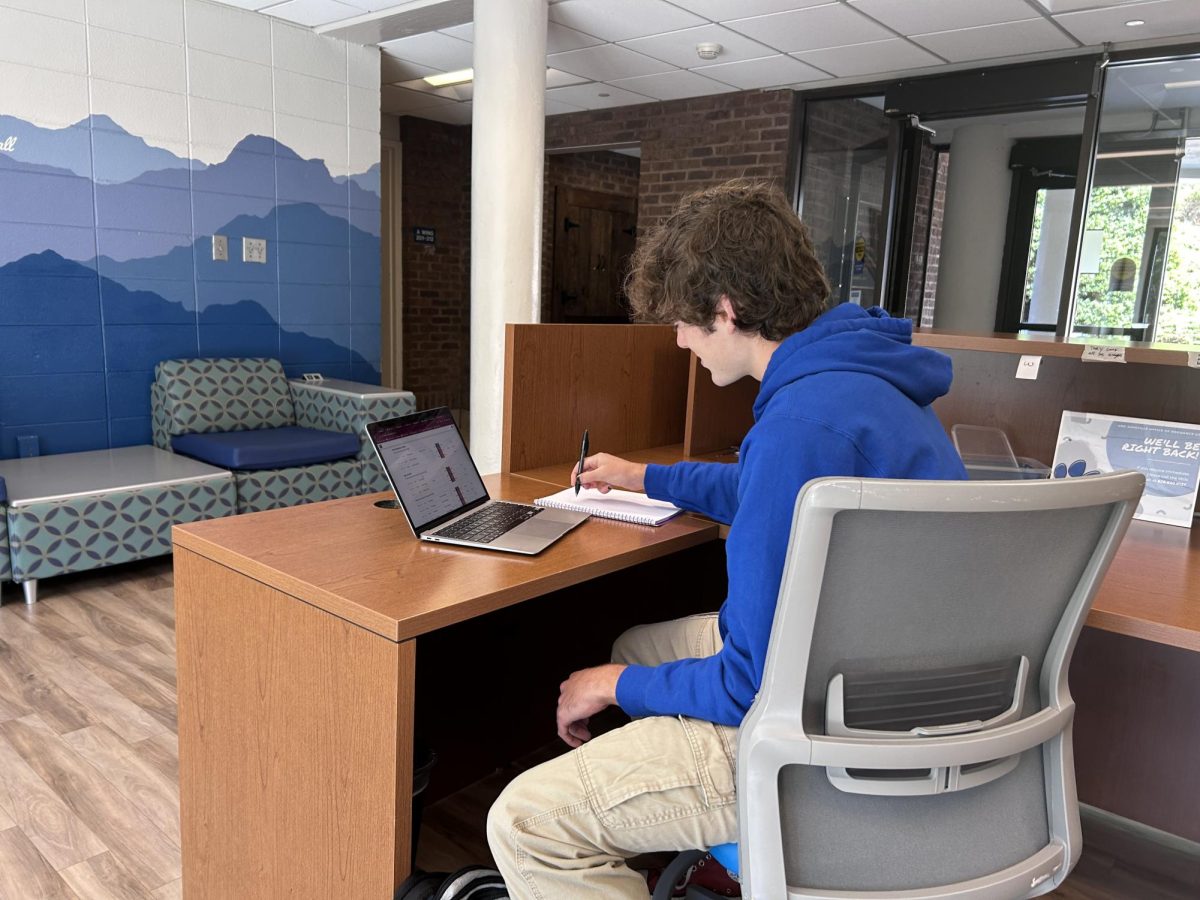Voting apathy rises in 18–24-year-olds as politicians begin to market to younger audiences and encourage them to make their voices heard, especially on UNCA’s campus, according to UNCA faculty member Ashley Moraguez.
“For a million and one reasons, many young people don’t feel like their vote counts,” said Lindsey Prather.
Prather runs for re-election in the North Carolina State House of Representatives for the Democratic party. As a politician herself, Prather said how important it is for 18–24-year-olds to vote, while also acknowledging how challenging the voting process is for this age range.
“I try to be compassionate and be clear in that I completely get why you feel like your vote doesn’t count,” Prather said. “Trying to focus on the positive and trying to focus on the good things that could happen if we had more young people’s voices in government.”
As the youngest woman representative in the State House, Prather said she works diligently to help young people realize they can change who represents them. Prather said she hopes to express the value in the young people’s votes and said everyone older than them is speaking and making their voices heard, so young people should too.
“Voters don’t hear people talking about young people’s issues because the people who are talking aren’t young,” Prather said. “People make policies based on their own experiences.”
Prather said she urges young voters to participate specifically in local elections. She uses an example of Cheri Beasly, a Democratic nominee, who ran for Chief Justice of the North Carolina Supreme Court in 2022.
“She lost a state-wide election by 401 votes – that’s four votes per county – that is just you and your suitemates,” Prather said.
Prather said she understands how irrelevant voting feels when 18–24-year-olds feel like their votes don’t matter. As a politician herself, Prather said she makes an effort to be honest and open with the people she is campaigning to, including young voters.
“If I don’t have an actual opinion, the best thing for me to do is not vote,” said Caroline Snell, a 23-year-old, third-year art student at UNCA. “My vote can sway the actual outcome.”
Snell said politician’s campaigns are ingenuine and don’t feel truthful. According to Snell, it is challenging for her to trust politicians and be encouraged to vote due to the lack of follow through of promises made on the campaign trail.
“It’s not all lies, but a good amount of it is. It is so hard to do research on the candidates to just find the truth,” Snell said.
Logan Deaver, a 20-year-old, second-year environmental studies student at UNCA, said he uses the search for truth as his reason to vote.
“I am choosing to vote in the presidential election because I have a lot of opinions that I want to be represented in the U.S. government,” Deaver said. “The best way to do that is by voting for a representative that can help implant those views into the wider American system.”
According to Deaver, there is a large importance in young people voting.
“The people we are voting in now are going to have a major impact on the future as we get older and start families and start looking for jobs. The people we vote in now are going to be making the policies for the next 20 years,” Deaver said.
According to Deaver, a lot of his news comes from unbiased sources, typically on Instagram. Many politicians are just beginning to shift their campaigning to online and social media sources in hopes of reaching young voters.
“It’s important to have views you can get behind by researching and researching – it never stops,” Deaver said.
Asheley Moraguez, co-chair of the UNCA political science department, said she works with students on campus to help raise voter engagement. She said that the term “voter apathy” is a narrative that is pushed by politicians and the media.
“It is a fact that 18–24-year-olds turn out at lower rates,” Moraguez said. “But I don’t think that is apathy, I think it’s more of a story about access and the expectations we have on young people.”
Moraguez said studies show that voting is habitual. According to her, it is almost unfair to compare the turn out rates of this age range to older voters since this may be their first election, in comparison to someone in their 60s who has been through multiple election cycles.
“Young people don’t have the luxury to spend as much time navigating the electoral landscape or the political news, so it is harder for them to get engaged and get informed,” Moraguez said.
Moraguez said she is also aware that some young people choose not to vote because of political situations or candidate choices. According to her, this is not apathy but is a passion that is just channeled differently.
According to Moraguez, there is a great importance in politicians coming to campus and showing this age range that they care.
“I think that physical presence is a huge deal when politicians show us that they care,” Moraguez said.
She said in order to form these voting habits, politicians, activists and all young people should be working to get everyone to the polls, starting now. If politicians don’t start to change things now, the future could be negatively affected.
“We know from political science research that telling people their vote matters actually does work,” Moraguez said.
The Student Government Association, along with politicians willing to work with students, will be holding multiple events to encourage 18–24-year-olds in the area to educate themselves on what voting looks like. Prather urges all young people to head to the polls this November.
“Stick it to the man,” Prather said. “They wouldn’t try so hard to make it hard for you to vote if your vote didn’t matter. They don’t want you to vote, so you should.”




















